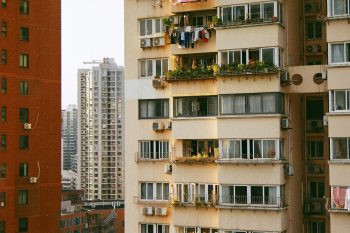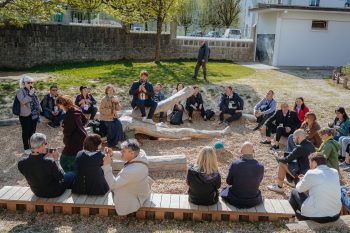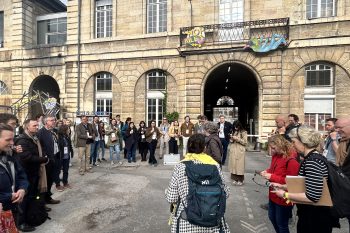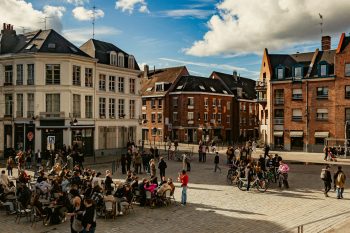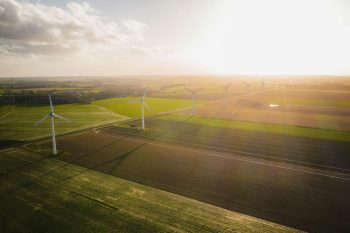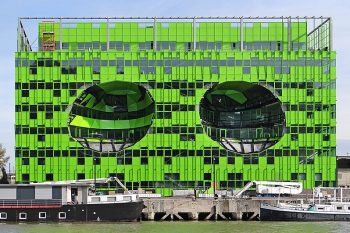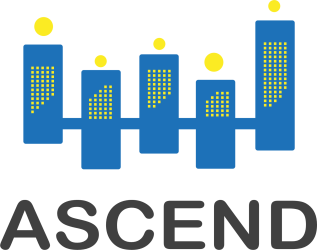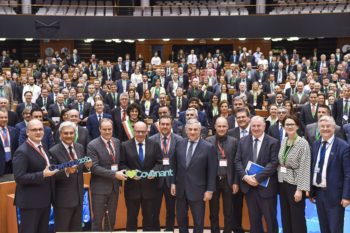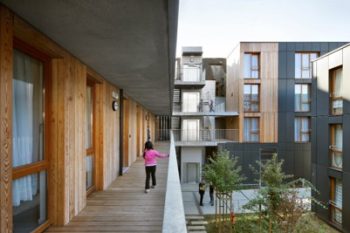Urban planning & Vision
Bridging local and European agendas for the future of food
Energy Cities joined Slow Food’s Terra Madre Europe event to exchange on the role played by cities
08/07/2025
Cities speak out for affordable and sustainable housing
Energy Cities gathered its board for a meeting with the European Commission on the housing crisis
02/07/2025
Learn how to lead your city’s green transition
Planning the Energy and Climate Transition for Cities is a new free training aimed at upskilling public officers and professionals working in the climate and energy field
01/07/2025
Local Transitions Learning Centre: Discover our rich learning offer!
From urban regeneration to financing sustainable energy projects and much more - all the knowledge and tools you need to make your city futureproof
20/05/2025
“Chimneys will be for nostalgics and for Santa Claus”
Detox City Mechelen and their people-centered heat transition
13/05/2025
People and nature at the heart of resilience
The Adaptation Journey in Besançon showed us how cities can face growing climate risks by reconnecting with greenery and community
16/04/2025
Rethinking our cities: how Besançon is embracing the circular economy
During the Energy Cities journey "Doing better with less", we experienced the transformative power of sufficiency measures
15/04/2025
Housing rights: Metropolis of Lille’s challenges and solutions
The European Metropolis of Lille is calling for strong action to develop affordable housing without compromising the environmental commitments
04/04/2025
A European consensus is formed on achieving fast & fair deployment of RES and grids
5 principles for renewable energy projects that benefit people and the planet
31/03/2025
Housing rights: Utrecht’s challenges and solutions
Utrecht is calling for funds to provide affordable housing to vulnerable people, the younger generation and the middle-class
11/03/2025
Projects All projects
Accelerating positive, clean energy districts (PCED) for cities’ transition towards climate neutrality and social justice across Europe The project’s overarching goals are to: make cities […]
Covenant of Mayors for Climate & Energy
The world's largest movement for local climate and energy action.
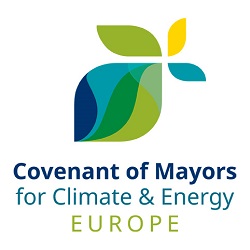
After the adoption, in 2008, of the 2020 EU Climate and Energy Package, the European Commission launched the Covenant of Mayors to endorse and support the efforts deployed by local authorities in the implementation of sustainable energy policies.
SHAPE-EU
European Affordable Housing Consortium: Sustainable Housing for Social Impact
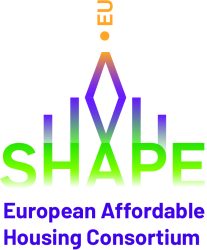
The European Union has embarked on a challenging journey towards carbon neutrality. A promising approach is district renovation. Renovation at district scale reduces CO2 emissions […]
NetZeroCities
A journey towards climate-neutral cities in Europe
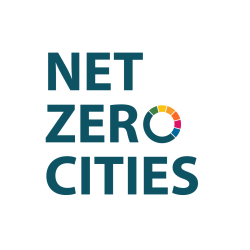
NetZeroCities (NZC) is part of the Horizon 2020 Reseach and Innovation Programme in support of European Union’s Green Deal. It will support Europe in its […]

